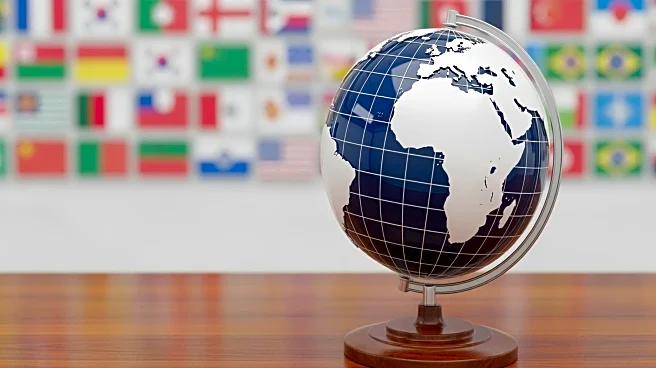What's Happening?
President Trump is currently on a six-day tour of Asia, focusing on securing trade deals with China and other Asian nations. His visit comes at a time when several of the leaders he is meeting are either
autocrats or preside over fragile democracies. In Malaysia, Prime Minister Anwar Ibrahim expressed admiration for Trump's bold approach, highlighting his willingness to break security protocols. This trip underscores Trump's strategy of prioritizing economic agreements over promoting democratic ideals, as he engages with leaders who appreciate his unorthodox governing style.
Why It's Important?
The trip highlights a significant shift in U.S. foreign policy under President Trump, where economic interests are prioritized over the promotion of democratic values. This approach could have long-term implications for U.S. relations in Asia, potentially strengthening ties with authoritarian regimes while sidelining democratic principles. The focus on trade deals may benefit U.S. businesses seeking access to Asian markets, but it also raises concerns about the U.S.'s role in supporting global democracy. Critics argue that this could embolden autocratic leaders and weaken democratic institutions in the region.
What's Next?
As President Trump continues his tour, further trade agreements are expected to be announced. The outcomes of these negotiations could influence U.S. economic policy and its geopolitical stance in Asia. Observers will be watching to see if Trump's approach leads to tangible economic benefits or if it sparks backlash from those advocating for stronger democratic governance. The response from U.S. allies and domestic political leaders will also be crucial in shaping future foreign policy directions.
Beyond the Headlines
This development raises questions about the ethical implications of engaging with autocratic leaders. It challenges the traditional U.S. foreign policy stance of promoting democracy and human rights. The long-term impact on global perceptions of U.S. leadership and its commitment to democratic values remains uncertain. This shift could redefine international alliances and influence the global balance of power.








